|
9/5/2015 The Power of Sex EducationBy Jean Workman, MA, See the Triumph Guest Blogger and Director of Development for SHIFT NC She timidly raised her hand and with a very shy and quiet voice asked, “So am I still considered a virgin if I was raped by my mother’s boyfriend a few years ago?” With as much compassion as I could muster, I replied, “Yes sweetheart, your virginity is yours to own and when someone takes away the choice of sex, you still own your body and your virginity.” As an adolescent sexuality educator, I have heard this story too many times while teaching sexuality education to 7th and 8th grade girls. Too often. a middle school girl’s question in class is the first time she has admitted to anyone that she was sexually abused and is the door opener to advocacy on her behalf. It’s one of the reasons why I believe sexuality education should be free of shame, guilt, and fear and is imperatively important in our middle and high schools across North Carolina and the nation. As John Oliver recently explained in his conversation on sexuality education on Tonight with John Oliver, “There is no way we’d allow any other academic program to consistently fail to prepare students for life after school and human sexuality, unlike Calculus, is something you actually need to know about for the rest of your life.” (Oliver, 2015) Sexuality education is far from just teaching about sex. It includes information on the importance of having a strong self-esteem and provides tools for how young people can own their assertive voice for communicating their wants, needs, and desires. This is important not just for sexual relationships and intimacy, but also in friendships, where having an assertive voice can help them navigate the prickly road of saying what they mean and standing up for themselves in peer pressure situations. Comprehensive sex education includes decision-making skills so that young people can strengthen their ability to listen to that gut instinct that tells them when a situation is dangerous or inappropriate. It’s a practice makes perfect scenario, and quality sex education provides a safe practice space for negotiating those necessary skills. These skills allow young people to practice owning their assertive voice for healthy communication. Creating a safe space for learning is vital to the topic of human sexuality. Young people need to feel they can talk openly with one another and their instructor without fear of gossip, judgment, shame, or guilt. This safe space is crucial for young people who have experienced past sexual traumas, as sexuality education often opens doors for adolescents to share past sexual experiences, including non-consensual experiences. Darkness to Light (D2L), one of our nation’s leading resources on child sexual abuse awareness and prevention, has championed the movement to end child sexual abuse since its founding in 2000. According to D2L the risk of teen pregnancy is much higher for girls with a history of child sexual abuse, most likely due to over-sexualized behavior, another common consequence of child sexual abuse. (http://www.d2l.org/). Comprehensive sexuality education is an important piece to the teen pregnancy prevention story throughout our nation. North Carolina’s teen pregnancy rate has dropped 67% since its highest peak in the early 1990s. It opens doors for assertive communication, builds awareness about resources adolescents and young adults can use and increases knowledge about the sexual and reproductive health system. It also links young people to resources when the choice of sex has been taken from them and they desperately need an advocate to help illuminate their voice. This education is a powerful tool that adolescents will use well into adulthood. As a mother of two adolescents, my mantra for raising sexually responsible adults is to inspire the vision that their sexuality and the sexuality of their future partner is powerful, extraordinary, and worth protecting. As Maya Angelou said, “People often forget what we say and forget what we do, but they will never forget how we made them feel.” Comprehensive sexuality education that is free of shame, guilt, or fear creates a magical melody that inspires that vision that young people are powerful, extraordinary and worth protecting. What other melody could we possibly want for our children to embrace with regards to their sexuality? Oliver, J. (2015). Last Week Tonight with John Oliver: Sex Education (HBO) https://www.youtube.com/watch?v=L0jQz6jqQS0 For over 20 years, Jean has shared her enthusiasm for inspiring competence, confidence, and connectedness with young people and creating magical classroom experiences on the local, state, and national level. She is the co-author of several nationally-recognized, award-winning, research-based sexual health, teen pregnancy prevention, and parental involvement curricula. Jean has a BS in Community Health Education from UNC Greensboro and an MA in Nonprofit Management from High Point University. In her spare time she teaches a Human Sexuality course at Guilford College, coaches her daughter’s elementary cheerleading squad, and enthusiastically cheers at her middle school son’s sporting events. She has lived in NC all of her life and resides in Greensboro with her partner and two children.
By Sara Forcella, See the Triumph Contributor
It’s just about that time again; college students across the United States are making Target runs, stocking up on mac-n-cheese, ordering their textbooks, and loading up vehicles, ready to make the move into university housing. This is an exciting time for both parents and students alike, but it can also prove to be one of the most dangerous times for students as well. The ‘red zone’ is a term used to describe a heightened risk of unwanted sexual contact, specifically for first- and second-year women. The span of the ‘red zone’ has been debated; however, most research suggests that it may last as long as to the end of the fall semester. The Office of Community Oriented Policing Services of the U.S. Department of Justice states, “College students are the most vulnerable to rape during the first few weeks of the freshman and sophomore years. In fact, the first few days of the freshman year are the riskiest” (p. 7). The ‘red zone’ is creates a seemingly perfect storm for sexual assaults to occur. During the first few weeks, up until the end of the fall semester, incoming students are overwhelmed by an influx of new realities and are forced to quickly alter the lifestyles they had adapted over the course of the previous 18 or so years. It’s now up to the students themselves to decide how late at night will stay out, who they’ll go out with, what or if they drink alcohol, what their sexual expectations and limits are, and much more. For most students, this is the first time where they have no real parental rules; they have complete autonomy over their lives. It is also a vulnerable time for freshmen because they are not as familiar with their surroundings as upperclassmen are. They may rely on other freshmen or even upperclassmen to help them get around or figure out the college culture (Flack et. al, 2008). Relying on others to get around or understand the college atmosphere can be both tricky and at times risky. It’s important that while students work on building new friendships and relationships they rely on their instincts--trusting their gut is one of the main ways students can keep themselves safe their first few weeks on campus. Fraternity and sorority life activities also compound this increased period of danger with their “rush” weeks. It’s common for traditional fraternities and sororities to rush new members during the first few weeks of school. Typically this means that fraternities have an increased number of off-campus, parties where alcohol and drugs are easy to obtain. Due to the culture of many fraternities, this also provides an opportunity for upperclassmen to take advantage of the “naive newcomers” (Flack et. al, 2008). A 2008 study found that approximately 1 in 3 women (30 %), reported experiencing at least some level of non-consensual sexual touching during this time (Flack et. al). This number may leave parents and students feeling uneasy; however, it’s important to know that there are ways to reduce one’s risk of being a victim of the ‘red zone.’ Sexual assault or unwanted sexual contact is never a survivor's fault. Ever! The way they dress, the amount they drink, the people they choose to hang out with and their amount of previous sexual activity have no impact whatsoever on one’s victimization. A sexual assault can only ever be blamed on the perpetrator(s). Nonetheless, it’s unhelpful to simply share this information with you, potentially leaving students and parents feeling scared and disempowered. There are ways that students can prepare themselves to have a fun, and hopefully safe, experience at college during their first semester. Here are a few things that incoming students may want to do to feel more empowered over their first-year experience during the ‘red zone’:
By Sara Forcella, See the Triumph Contributor
On April, 9 members of NC State’s community came together to raise awareness about an important public health concern, sexual assault. Present were members of the faculty and staff, administrators and deans, students who represented members of various fraternities and sororities, athletic teams, residence halls, military affiliations and student groups. I was blown away by the amount of sheer love and support seen that night. As an advocate who works very closely with survivors, I was proud to see that so many students truly care about ending sexual assault on campus. One of the most powerful pieces of our Take Back the Night Event, was the Clothesline Project. This is a space where we displayed t-shirts created by survivors and allies. Many of the t-shirts were decorated with sayings like, “I am a survivor”, “You can never hurt me again”, “It was not your fault”, “You are strong”, and “You are a survivor, not a victim.” The courage displayed was beyond what I could imagine. As people passing by stopped and looked at these t-shirts, they too were struck by their profoundness. These were created by members of our campus, our pack! One group who was particularly engaged during the night’s events was the Army ROTC. They came to the event in full uniform and in formation, a sight that was truly breath taking. A common theme heard during both the rally portion of the night and the survivor speak-out portion was the importance supporting survivors of sexual assault. Time and time again, we were reminded of the importance of creating a campus that holds perpetrators accountable and supports survivors. We challenged each other to build a strong campus community where rape jokes aren’t made and, when they are, they are quickly stopped, where survivors feel safe to reach out to staff members to share their stories and make reports, where students feel empowered enough to know how to help survivors of sexual assault, and where we are all knowledgeable about bystander intervention skills. I must admit that I left the event with a full heart, not because I was saddened by what I had heard, though I most definitely was, but more because I was immensely proud! I was so incredibly filled with love and pride for not only my campus, but for the survivors who were brave enough to share their stories and for each and every survivor that I have ever worked with. When I work with survivors, or when I looked in the eyes of the survivors speaking on stage, I saw just that--a survivor. Not a victim; never a victim! The point of this event was not only to raise awareness about sexual assault on college campuses, but more importantly, I feel, to give survivors and allies a space where they can speak about their experiences: the fear, the shame, the guilt, the silence, the pain, the pride, the power, the strength, and the growth. I am really proud that we were able to create this safe space for students to gather and speak the truth and share their stories. It is my hope that during this night, during this process, that we helped survivors heal as much as we raised awareness! By Sara Forcella, See the Triumph Contributor
College is a time of vast change for young adults. It is also a time of many firsts, which could involve your first time living on your own, first time having a roommate, first time taking college-level courses, first committed romantic relationship, and possibly first time drinking alcohol. While not all students on college campuses drink, many do. College culture as a whole is affected largely by the influence of alcohol and the sense of comradery that occurs among students who live together on campus. However, alcohol also inhibits students' decision making skills. Therefore, as a sexual violence prevention educator, I believe that ignoring the amount of drinking that takes place on college campuses is not only counterproductive, it's downright dangerous! The danger of ignoring students’ use of alcohol lies not only within the alcohol drinking alone, but its connection to sexual assault. On college campuses, perpetrators of sexual assault use the consumption of alcohol as a tool to reduce their victims’ decision making and motor skills. It’s important to note that alcohol is not the cause of sexual assault on college campuses--the perpetrators themselves are the only ones to blame. Nevertheless, the use of this drug to inhibit victims is clearly identifiable. Consider this: research shows that as many as 90% of all rapes on college campuses occur when either the perpetrator or victim was using alcohol (Brown University, Health Promotions). Where does this statistic leave parents, educators, and students? Does it mean that we don’t send our children off to college? Or that even college students over the age of 21 shouldn’t be allowed to drink? Neither of these seem to be the answer--but what is? For me, the answer lies in education. Just like with any other health concern, we must educate students about sexual assault before they attend college and again while they are on campus. Research shows that women in late adolescence to early adulthood are at the highest risk of being sexually assaulted. Therefore, we must educate young women that sexual assault is a daily risk, with or without the consumption of alcohol, especially for those between the ages of 18 and 24 (Collins & Messerschmidt, 1993). Furthermore, when alcohol is added to the equation, women are even more at risk for being sexually assaulted. Most importantly though, we need to educate women that sexual assault is never okay and that it is never their fault. But we can’t stop there! We can’t just educate half of the population and make it their responsibility to fend off criminals. Research also shows that most perpetrators of sexual assault are men (Sedgwick, 2006). Instead of victim blaming, lets hold the perpetrators accountable! We need to teach them that just because a partner has agreed to some level of intimacy, it does not mean they are entitled to take it farther, and that if they do so without permission, it’s sexual assault. They should know that getting sex by using coercion and manipulation are in fact forms of sexual assault. Men need to understand that feeding someone drinks in order to make obtaining sex easier is sexual assault. It’s our responsibility to teach men to look for ‘enthusiastic consent’ before engaging in sexual activity, instead of acting upon a lack of a ‘no.’ Finally, men need to face the reality that if somebody reports that they were sexually assaulted while drunk, it can not only change their own lives, but also that survivor’s life. It’s not only women who are affected by sexual assault on campus, men are too. Women, like men, can be perpetrators of sexual assault. It’s our responsibility to teach both men and women (beginning at a young age) to understand personal boundaries. This means asking for consent before engaging in any kind of intimate act, whether it be as silly as tickling or as serious as sex. When it comes to alcohol, both men and women need to know that if either party is intoxicated that they can not legally give consent. Alcohol has the potential to change things, and it only takes a matter of seconds to violate, shame, degrade and sexually assault someone--therefore before these things are ever able to happen, let’s take the time to educate our young adults. 9/16/2014 Understanding Intimate Partner RapeRape and sexual assault are recognized as important issues on college campuses. Many colleges and universities across the country are working to prevent sexual violence, provide better resources for survivors, and hold offenders accountable. Within these efforts, it's important to remember that rape and sexual assault can occur within intimate relationships, including dating relationships, committed partnerships, and marriage. The following infographic provides some important information for understanding sexual assault and rape within the context of an intimate relationship. This infographic was created by Jennifer Schenker, who is a graduate student in the Department of Counseling and Educational Development at the University of North Carolina at Greensboro. Sources of information used in the infographic were as follows:
By Elissa P. Pope, See the Triumph Guest Blogger Enough is enough. Acquaintance rape and sexual assault on college campuses seem to be out of control. And though recently universities are facing the fire for their lackluster response to the epidemic, the fact is that many campuses simply are not prepared to be the hand of the law when it comes to sexual violence on their campuses. Something needs to change, because according the U.S. Department of Justice, rape is the most common violent crime on American college campuses today. In fact, statistics say that 1 in 4 college women will be the victim of sexual assault during her college career. Those statistics should be sobering to parents – of both boys and girls alike. We are living in a culture of rape, and we’re sending our children into the thick of that culture when they leave home for college. But even as we begin to acknowledge that reality, we also can’t just sit back and hope that someone else will take care of it for us. No, we as parents are responsible for teaching our children about this reality, and for instilling in them the values necessary to help them survive it. For many years, the focus has been on parents teaching their daughters how to protect themselves from sexual violence perpetrated by males. But teaching our girls to play defense simply isn’t enough. The fact remains that statistics say that many will still fall victim, and that alcohol is usually involved. Victims of sexual assault are then left to navigate the treacherous waters of victim blaming and shame. Teaching how not to get raped is only part of the battle. We need to teach all of our young people how to respect others’ bodies and how to treat other people with nothing but the utmost respect for others’ rights to make their own decisions about their bodies and their sexuality. To help our children prepare for rape culture on college campuses, let’s be a different voice for our young people to hear throughout their childhood and adolescence. Let’s make sure that they leave home with these words in their hearts: 1. Respect your body – and everyone else’s too. When our babies are new, we revel in the miracle that is the human body, spending hours staring at their beautiful fingers, tiny toes, button noses, and perfect ears. As they grow into toddlers, we strive to help them adopt that same reverence for the human body, as they discover all that is new and wonderful about themselves. We want them to love themselves as much as we love them and to extend that love and respect to others. But those lessons continue throughout their lives. The voice that tells them to love and respect all human bodies should be ever-present. Because with every passing year, their world is getting bigger and broader, and they will meet situations where that respect for another is hard to come by. And they will experience someone who isn’t respecting them. In those instances, we want their heart to be screaming that this isn’t right. 2. Your body should not be the cause of pain for another. A child’s relationship with their parents sets the stage for all future relationships. In even the most loving households, violence creeps in, often through innocent play. In our house, parents and children roughhouse with one another. I think it’s a great teaching opportunity for our children, so that roughhousing comes with a set of rules. One of which is that it is NEVER okay to slap, punch, or pinch one another, even when we’re playing. Even if anger isn’t the source. Our bodies are NEVER to be used for hurting another. Never. 3. When it comes to your body, you’re in charge. As I mentioned above, my children and I like to engage in physical play, which, according to some experts is incredibly beneficial for their development. It usually involves a lot of laughter and joy, and is a great way to bond with one another. But when we’re roughhousing or tickling, and someone says stop, even if they’re giggling through their words, we stop. Always. This is a hard one for almost everyone, because it sometimes means that the person who’s having tons of fun has to put a halt to it. And sometimes it means that the person who said, “Stop” didn’t really mean it and they want to keep playing. We’ve had countless conversations about why we have this rule, and what it means. My hope is that our children are truly internalizing the idea that all people get to be in charge when it comes to their body. 4. You don’t deserve to get everything you want. Everyone hears no at some point in their lives. With any luck, a child’s parents deny them something that they want on a regular basis, because that’s a reality of life at any age. We don’t always get what we want. People tell us no all the time. The lesson goes deeper than that, though. We can’t just tell a child no and dust off our hands before giving ourselves a hearty pat on the back for a job well done. We need to go further and actually teach our children how to respond afterward. Should they throw a temper tantrum? Hit because they’re angry? Try to take it anyway? Argue and persist until they change someone’s mind? That last one works on parents time and time again. We end up raising children who don’t know how to handle denial, or worse yet, who don’t believe that no is the final answer. The bottom line is that no means no. Parents can reinforce this message by setting—and sticking to—limits with their children. 5. Sex has value. I think most of America’s teenagers already come of age knowing this to be true. Value is ascribed to sex in almost every facet of our culture. Sadly, one of the loudest voices spoken to our children says that a primary value of sex is in making young people into men and women. Teens can internalize the message that having sex should be their primary objective if they want not to be seen as a child. And what teenager wants to be seen as a child? That’s an influential message, and it comes at them from countless directions. How then can we, as parents, minimize something with so much power? It’s unlikely that we can be a louder voice than the others. What we can be though, is an earlier voice. Talking about sex with our children is uncomfortable. For many of us, it makes our stomachs churn just thinking about it. So we put it off…we are great at procrastinating! But while we’re busy doing all that procrastinating, the other voices aren’t shy, and they chime in full-force. Before we know it, we’ve missed our opportunity, at which point many of us sigh and say, “Oh well.” Nope. We need to suck it up and talk to our children about sex before the other voices take top billing. Be there first to plant the seed so that your voice has a chance to take root before the onslaught ensues. We’ve got a hard job, us parents. And the world around us isn’t doing a thing to make it easier for us. The ever-growing presence of screens is opening the whole world up to our children, and in many ways, that’s amazingly wonderful. But at the same time, it’s quieting our voices in our child’s world, and we can’t afford to simply let that happen. Sexually violent images, words, and ideas are frantically swirling around our children and they are getting swept up in the tornado. As parents, we can be their anchor in the storm and help them navigate the challenges they face as they confront rape culture in college.  Elissa Pope graduated from Florida State University with a degree in Elementary Education. After spending several years working in public schools, she is now a graduate student at UNC-Greensboro, pursuing an MS in Couple and Family Counseling. She is passionate about the value of healthy family relationships and the ways in which the counseling profession can be a part of the healing process for those affected by domestic violence and sexual assault. By Christine Murray, See the Triumph Co-Founder
The World Health Organization defines sexual health in the following way: “…a state of physical, emotional, mental and social well-being in relation to sexuality; it is not merely the absence of disease, dysfunction or infirmity. Sexual health requires a positive and respectful approach to sexuality and sexual relationships, as well as the possibility of having pleasurable and safe sexual experiences, free of coercion, discrimination and violence. For sexual health to be attained and maintained, the sexual rights of all persons must be respected, protected and fulfilled.” (WHO, 2006a) I like this definition because it goes beyond viewing sexual health as simply a lack of problems, but it encompasses pleasure, satisfaction, respect, and safety. We heard from participants in our research, especially those who had experienced sexual abuse within their past abusive relationships, that a positive sense of sexuality and sexual health can be challenging to achieve in the aftermath of an abusive relationship. For example, consider the following quotes from our participants, which illustrate some of the challenges that survivors may face:
However, it’s important to also highlight that positive sexuality is possible, even in the aftermath of horrific abuse. For example, one research participant who’d been sexually abused by a former partner said, “I've started to think about myself as a stronger person. It took a long time for my self esteem to come back. I had a few years where I thought I was disgusting, and couldn't enjoy a sexual relationship.” This participant’s experience demonstrates that even after facing some initial negative sexual consequences from past abuse, it is possible to achieve a greater sense of self-esteem and enjoy a safe and healthy sexual relationship. Every person’s situation is very unique, so there are no simple rules to say how every person could recover from past abuse and achieve a positive sense of sexuality in their lives. What works for one person may be different than what works for someone else. However, the World Health Organization’s definition of sexual health supports the following four suggestions for survivors seeking to establish positive sexual health as part of recovering from a past abusive relationship: First, seek help for sexual health problems and dysfunctions. Survivors may have contracted sexually transmitted infections from their abusive partners (e.g., through their partner’s infidelity). Or, as in the first quote listed above, survivors may have injuries that make sexual activity painful or impossible. There are trained professionals who can assist survivors in understanding treatment options, include medical professionals (e.g., a gynecologist or family physician) and sex therapists (see the American Association of Sexuality Educators, Counselors, and Therapists web-site for a directory). Second, seek a respectful sexual partner who is sensitive, patient, and supportive. The World Health Organization’s definition emphasizes that sexual health “requires a positive and respectful approach,” and these are important qualities to seek in a sexual partner. Of course, it can take time to really get to know someone and know if they really meet these requirements. Survivors can therefore seek partners who are patient and understanding of their need for this time. Pressure to engage in sexual activity before you’re ready is a sign that person is not ready for a respectful, safe sexual relationship. Third, be alert for signs of coercion and abuse. The World Health Organization’s definition makes clear that freedom and individual choice are necessary for sexual health. If you come to feel that a partner does not respect your freedom to choose, or is trying to coerce you into anything you are not comfortable you are doing, know that you have the right to end that relationship. Seek partners who have good communication, ask you about your sexual preferences, openly discuss sexual questions and concerns, and listen respectfully to you when you are sharing your beliefs, values, and attitudes related to sexuality. Fourth, seek both pleasure and safety in sexual relationships. As we’ve discussed throughout this month, sexual abuse can occur within abusive relationships. These can certainly contribute to negative sexual experiences. Sexual pleasure can be absent or feel like an unattainable goal when past sexual experiences were characterized by pain, fear, disrespect, and humiliation. Again, seek professional help if you feel you’d benefit from formal support to address your sexual concerns. Note the World Health Organization’s emphasis on the sexual rights of everyone--including you. You have the right to safe, positive, pleasurable sexual experiences. Remind yourself of this right on your journey to recovery. We are constantly inspired by the stories of triumph over past abuse that we hear through the See the Triumph campaign, including our research participants and members of our community who share their stories with us. We know that sexuality can be a complicated aspect of this recovery process, but we also believe that all survivors deserve healthy sexuality and healthy relationships. We hope the resources we’ve shared throughout this month have been informative and helpful resources to support survivors toward achieving that goal. 4/25/2014 Healing Relationships By Hannah Brancato and Rebecca Nagle Co-Founders of Force: Upsetting Rape Culture See the Triumph Guest Bloggers Force: Upsetting Rape Culture is a creative and activist effort to upset the dominant culture of rape and promote a counter culture based on consent. As researcher Leah Boison states, we believe that rape is not a personal problem to be dealt with individually, but rather a societal problem that should be dealt with publicly. Force chooses to get people thinking through imagination grabbing actions like Pink Loves Consent or Playboy’s Top Ten Party Commandments. By pretending to be Victoria’s Secret promoting a line of consent themed underwear, or reinventing Playboy’s annual party school guide as a guide to a consensual good time, we mobilize new audiences affected by sexual assault to envision what steps they might take to change the social norms that engulf each of us. The actions encourage people to refuse to accept coercion and force as normal. In addition to capturing people’s imaginations, we know that building relationships, on the personal level and on the communal level, is an essential element in transforming rape culture. In her book, Trauma and Recovery, Judith Herman wrote, “The core experiences of psychological trauma are disempowerment and disconnection from others. Recovery, therefore, is based upon the empowerment of the survivors and the creation of new connections. Recovery can take place only within the context of relationships; it cannot occur in isolation.” Consent forms the basis for healing relationships in which exchange, communication, and negotiation are foundational. In a culture of consent, how we feel matters more than how we look. Consent culture means that openness and communication about sexual pleasure are the norm. In consent culture, people think about communicating about sex as hot, not awkward. Sexual partners accept “no” without question, and know that only enthusiastic, verbal consent means yes. Checking in with your partner about boundaries is just as normal as using a condom. Consent culture stands in opposition to the culture of rape that surrounds us. In rape culture, shaming survivors for their experiences is commonplace, both by the media and by communities. The criminal justice system does not adequately serve survivors, and the most oppressed people in this country have little to no access to justice and resources. Coercive and controlling relationships set the standard for young people, passed from generation to generation. Gender norms are restrictive and unrealistic. These factors add up to create an attitude that sexual and dating violence are unsolvable problems. It adds up to a culture that does not believe that domestic and sexual violence will ever really end. So how can we get from here- a culture entrenched is victim blaming and the public shaming of survivors- to a blissful, pleasurable culture of consent? How can people learn to believe that rape can and must end? As we work to make consent the norm through education, public messaging, and campaigns that normalize talking about sex, we also need to work to uplift survivors of sexual assault. We need to become trauma literate. After their assault is over, survivors of rape and abuse are often re-traumatized by sex, by invasive or controlling friends and family, by victim blaming statements, or silencing actions from our culture at large. If we were more trauma literate, communities, friends, family members and loved ones could avoid deepening and reinforcing trauma. On an individual level, we can be purposeful about always asking first, and always checking in with our lovers about boundaries. We can ask our sexual partners what they do not like, and what is triggering to them. We can respect their “no.” With friends and family, we can take care of each other and we can be patient, remembering that everyone’s healing process is different. We can learn about how PTSD works and remember that when people are sexually assaulted, their ability to control their own bodies is snatched away. As a community, we can create spaces where survivors can talk about their experiences, and be heard instead of being silenced. We can be witnesses, listening without judgment and without offering our opinions and advice. On a cultural level, we can refuse to tolerate victim blaming and public shaming of survivors, instead, putting our energy into building support for survivors. We can learn to recognize victim blaming and call it out when we see it. The Monument Quilt, Force’s most recent project, is one platform for this multi-tiered process of healing for not just individuals, but our culture as a whole. To create a new model for community response to rape, we are gathering a crowd-sourced collection of thousands of stories from survivors of rape and abuse. The Monument Quilt provides a participatory platform through which people can share their stories while working together to forever change how people in the US respond to rape. The quilt is being displayed in cities and towns across the country, leading up to a final display on the national mall, with the quilt squares stitched together to spell “Not Alone.” By constructing public space for healing, the quilt is creating a new reality. The quilt is based on a simple idea: that we can change our culture by centering the experience of survivors, and as a community, by learning from survivors about their experience, instead of telling them what they need. We can only build healing relationships by listening and by having spaces where we are heard.
You can get involved by hosting a workshop, or by creating your own quilt square. We need everyone to help by spreading the word by sharing the project on social media! You can find us on twitter @upsettingrape and at facebook.com/upsettingrapeculture. To make a financial contribution and help us go on tour with the Monument Quilt this summer, including a stop in Durham, NC, check out Force’s kickstarter campaign: https://www.kickstarter.com/projects/upsettingrapeculture/the-monument-quilt-tour 4/24/2014 Reclaiming Healthy Sexuality After Abuse By Rachel Miller, See the Triumph Contributor
After leaving an abusive relationship, there is much healing that needs to take place before a survivor can recover completely and move forward into a full and healthy life. An area of recovery that can easily be overlooked is a survivor’s sexuality. Often survivors are dealing with depression, anxiety, PTSD and other, more immediate, crises that can make reclaiming their sexuality something that gets placed on the back burner, if it is ever dealt with at all. If sexual abuse was part of the equation, then this topic becomes even more challenging to approach. You might wonder why, if there are so many other hurdles to move past, would one choose to focus on their sexuality at all? Here’s the thing about sexuality, it is about so much more than just having sex, reaching orgasm or pleasing a partner. When you reclaim your sexuality there is a piece of your self-worth that is able to be reclaimed as well. You gain back a sense of power and control over your own body that many who have suffered through abuse have lost. It can be empowering to remember that your body is yours, that it can bring pleasure and be enjoyed. Self-care, a piece of recovery that is crucial, can and should include reconnecting with your body and your sexuality in a healthy, empowering way. What does reclaiming your sexuality in a healthy, empowering way look like? Well, for starters, I’m not advocating running out and having sex with any and every person you come in contact with. What I am suggesting is spending some time reacquainting yourself with what turns you on, what makes you feel sexy, empowered and sensual. This may mean reading racy romance novels, or attending a friend’s adult toy party for something new, or romancing yourself one night with candles and a long bubble bath. I have spoken to women who have had success with each of these approaches. Whatever it may be for you take time to learn how to love your body as it is, remind yourself, or discover what you like, need and want sexually, so that when you are ready to move forward into a new phase of your life, you are better prepared to know and ask for what you need from a partner. This is imperative to having a healthy sexual relationship in the future. Even if you don’t have any intention of ever finding a new partner or can’t begin to contemplate ever being ready for that, knowing your body, getting comfortable in your own skin and owning that piece of yourself can do wonders for your self-confidence and your sense of self. Sexuality is not dirty, it is not wrong, it is natural, it is healthy and it is a crucial part of who we all are. You get to take it back and in the process take a piece of yourself back. As victims, so much of who we thought we were feels lost after we leave, so part of becoming a survivor is reclaiming as many of those pieces as we can. 4/22/2014 Cheating in Abusive RelationshipsBy Christine Murray, See the Triumph Co-Founder
When we started looking more closely at the experiences of the participants in our research who reported sexual abuse within past abusive relationships for this month’s focus on “Healthy Sexuality, Healthy Relationships,” one experience jumped out as common for many participants. Many of these participants reported that their partners had been unfaithful to them once or more throughout the course of their relationships. Now, the question of whether any form of infidelity is a form of abuse is one that we could debate (for example, see these posts from First Wives World and Your Tango). Infidelity is a violation of the trust and commitment that a person makes to his or her partner. Also, the person who has been cheated on often is emotionally devastated and may face physical health risks (e.g., sexually transmitted infections) and financial losses (such as when the unfaithful partner spends the couple’s shared money on the affair) as a result of the infidelity. Certainly, there are some parallels between infidelity and abuse, but we can save that full debate for another day. For today, I want to focus on some of the stories we heard from survivors of intimate partner violence who participated in our research. One aspect of their partners’ abuse and mistreatment of them involved infidelity. What’s more, as the following quotes show, often the infidelity was weaved into other abusive dynamics in their relationships. The following quotes came from participants who reported sexual abuse in their past abusive relationships:
All too often victims and survivors are blamed for their partners’ behaviors by their abusers, their friends and family members, and others. We need to continue to work to ensure that every person who chooses to use violent, hurtful, and abusive behaviors within relationships is held fully accountable for those actions. As the experiences of the participants quoted here show, we need to ensure that infidelity is included in our understanding of these abusive behaviors. |
Archives
July 2024
CategoriesAll About Intimate Partner Violence About Intimate Partner Violence Advocacy Ambassadors Children Churches College Campuses Cultural Issues Domestic Violence Awareness Month Financial Recovery How To Help A Friend Human Rights Human-rights Immigrants International Media Overcoming Past Abuse Overcoming-past-abuse Parenting Prevention Resources For Survivors Safe Relationships Following Abuse Schools Selfcare Self-care Sexual Assault Sexuality Social Justice Social-justice Stigma Supporting Survivors Survivor Quotes Survivor-quotes Survivor Stories Teen Dating Violence Trafficking Transformative-approaches |
Search by typing & pressing enter


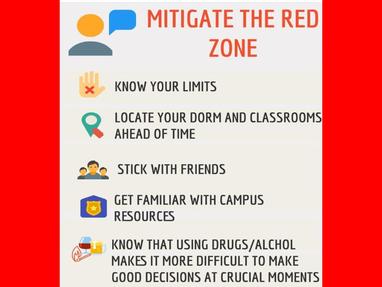
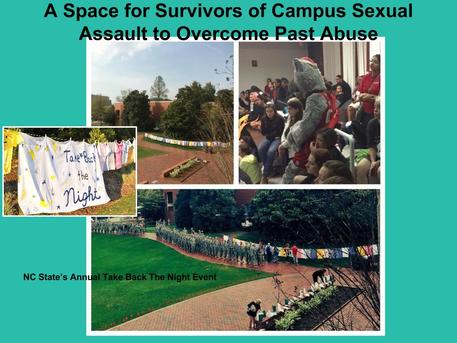
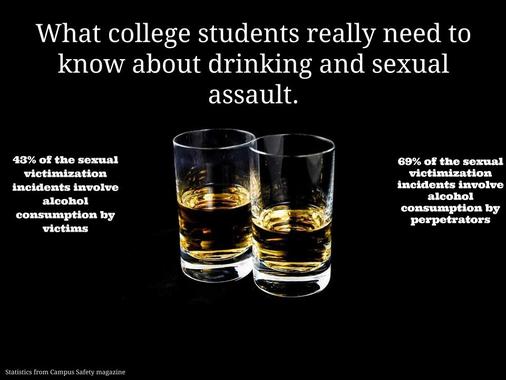
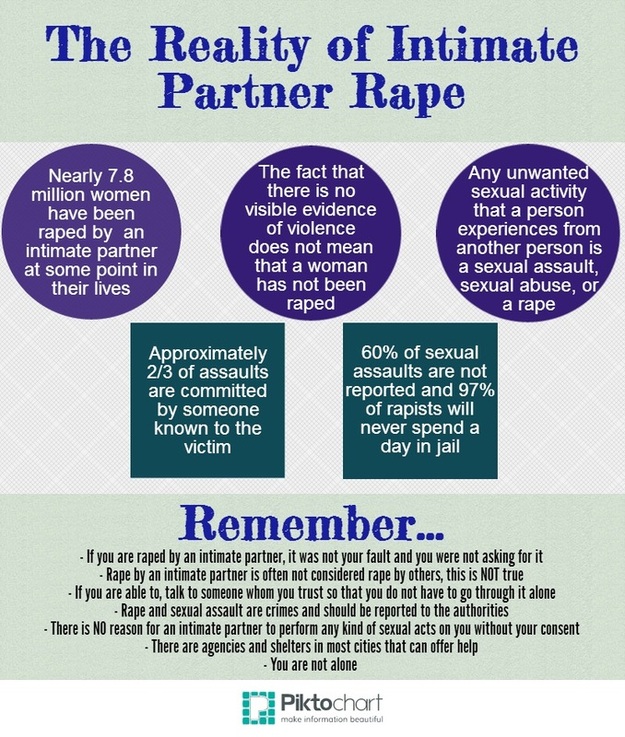
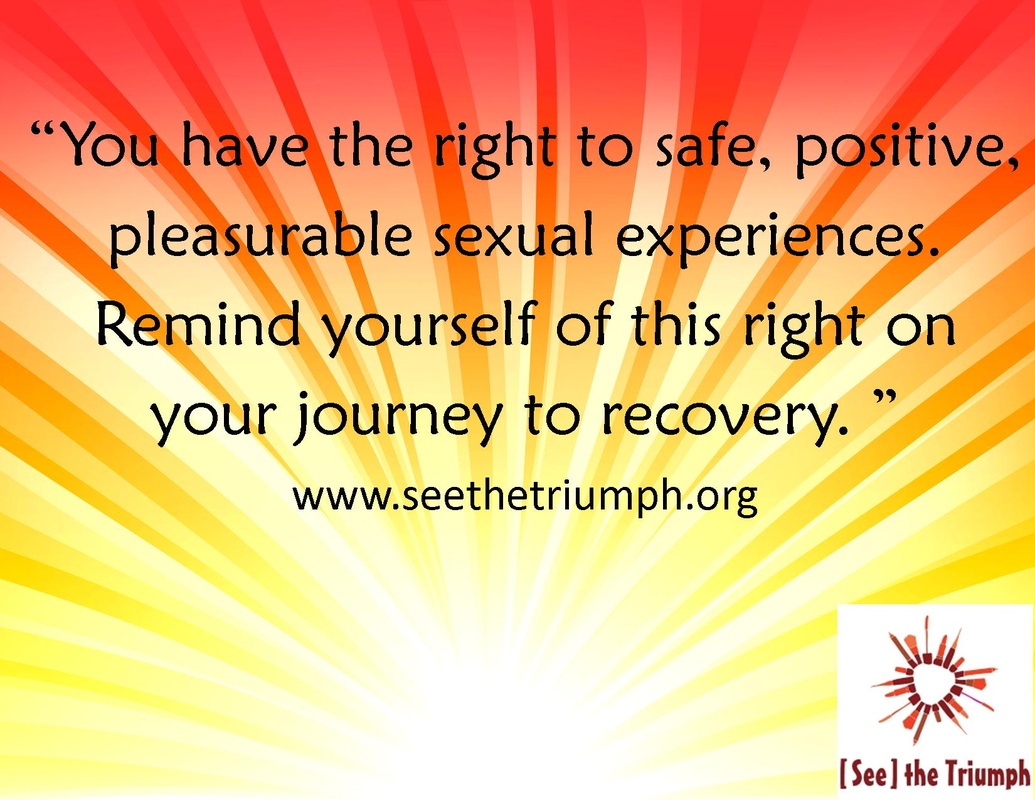



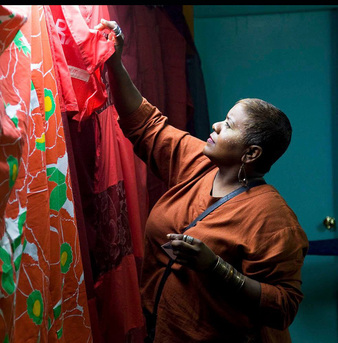
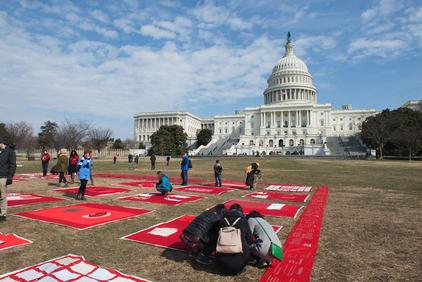
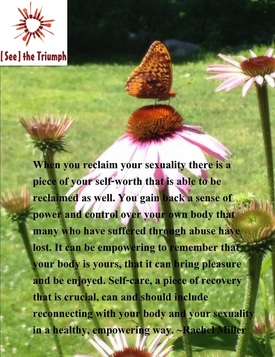

 RSS Feed
RSS Feed